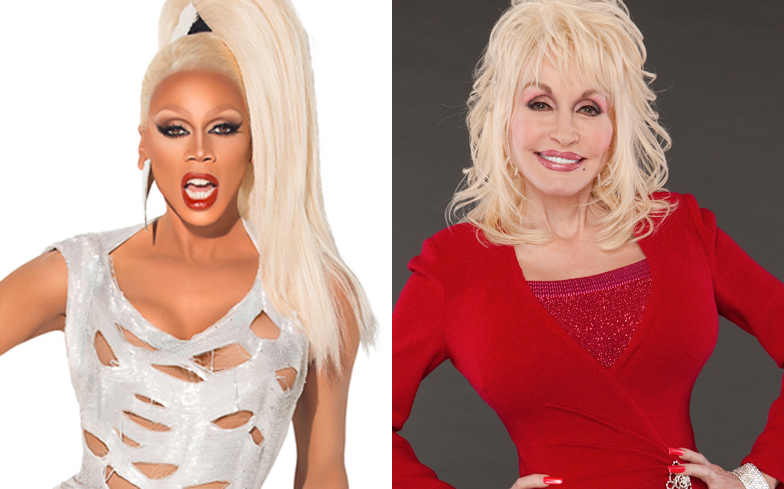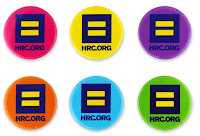We're strong and balanced in ourselves, and we take it to the bedroom.
September 30 2016
__________________________________________________________________________________
Contrary to what anyone believes, poz
people don’t stop having sex after receiving their status. Being
HIV-positive doesn’t mean we’re segregated into a corner to never
experience intimacy again — quite the contrary actually. In today’s
world, being undetectable means we will not transmit the virus to our sexual partners, which opens up new possibilities to experimentation.
We don’t mean to be biased (okay maybe a little), but undetectable
poz men and women tend to be the most emotionally supportive and
attentive lovers. It shouldn’t come as any surprise, seeing as we’ve
experienced a diagnosis and took control of our health and life. As a
whole, we've come out of this trial by fire better people.
Being HIV-positive forces us to reexamine our place in the world.
Part of that journey has forced us to recognize our own strengths and
character; as well as the love surrounding us, the fortitude of our
support system, and the millions of others sharing this experience. As a
result, our sex lives become grounded and spiritually fulfilling. And
that’s just the beginning. Here’s why:
We are concerned about your wellbeing.
We know what it’s like to have stigma attached to our name, which is
why we tend to be a bit more conscious toward the wellbeing of others,
especially our sexual partners. We know first hand that when we're depressed,
anxious, or not feeling well, sex isn't going to be as fulfilling. So
we'll be the first to check in on you, make sure you're feeling up to
everything too. We want you to feel safe because when you feel safe,
you’re able to relax. Afterall, sex is better when you're relaxed.
We can be trusted.
Don’t worry about what other people might say. Hear it from the
horse’s mouth. The fact that we've been upfront about our status — in
the face of pervasive stigma — says a lot about how truthful we’re going
to be in the future. When we say we’re undetectable, we’re not trying
to convince you to have condomless sex (we recognize there are still
STIs out there to avoid), we just want you to know that undetectable poz people cannot transmit HIV to a person who’s negative. Study after study after study has proven that. We can be trusted, HIV stigma can’t.
We’re excellent communicators.
There’s nothing that’s not on the table. Talk to us and we’ll listen.
If you want to ask us questions about our status, don’t hesitate. Trust
us we’ve rehearsed it time and time again. At this point we should have
it embroidered on a f*cking pillow. Our request is that you only ask it
once. After all, what is the point of asking the same HIV questions all night?
Sex is about communicating — verbally and nonverbally. Physically,
sex is an intuitive language that, when done right, sparks chemistry and
emotional stimuli. To communicate well means to be selfless. It’s not
all about us, nor should it be all about you. Isn't that what sex is
too?
We won’t hold back.
Sex is one of humanity’s best gifts. Holding back seems to be a
response to shame, fear, or insecurity. Shame is a disgusting place to
live — no one wants to revisit it. Been there, done that. Which makes us
far less likely to shame you for anything you do — in or out of
bed. Nobody has time for that, especially if we’re going to be so open
and vulnerable in our communication with each other. Once the trust is
set, the limits expand.
We don’t judge you.
When anyone feels judged during sex, they immediately close
themselves off. They give a small part of themselves, which obviously
limits the experience. We know what it’s like to be judged so it's the
last thing we'd do (unless you judge us, in which case we'll judge you
for judging us).
Feeling judged is like being imprisoned in your mind. It starts with a
look or a side comment, then morphs into a toxic idea we assume is
there. Before we know it, our bodies become stiff and fragile rather
than open and inviting. That puts a damper on everything.
We have less inhibition.
We know the truth: it’s nearly impossible for us to transmit the
virus. We probably have the lowest viral loads of anyone else in a room.
We're on top of our health, and we've to do so we've had to get used to
regularly dropping our shorts. If you don't think regular medical check
ups makes you face your hang ups about your body, you clearly aren't
seeing the doctor that often. We've gotten past the worry and panic so
many of us face when we're first diagnosed. We want to share the freedom
of doing so with you, but we know you won’t get there overnight. It
took us a while to accept the fact that being positive just means we've
been unlucky biologically — we're not dirty, slutty, gross, evil or deserving of the virus. We are simply unlucky. We're accepting the hand we've been dealt and we're less inhibited because of it. This makes intimacy more flexible.
We’re more likely to be open to experimentation.
Everyone has their limits, but undetectable poz people have the
capability to stretch them every once in a while, not just around sex,
but with life in general. Being HIV-positive has a surprise effect on
how we build new experiences. The fear of what “might happen” disappears
because of the gratitude and appreciation we’ve built for ourselves
along the way. We're reinvested with life, and we're ready to experience
new things. Undetectable poz people seek ownership. We want to own our lives and the experiences we have. We enjoy pushing our limits to see where they go. Wouldn't you like to go along for the ride?












